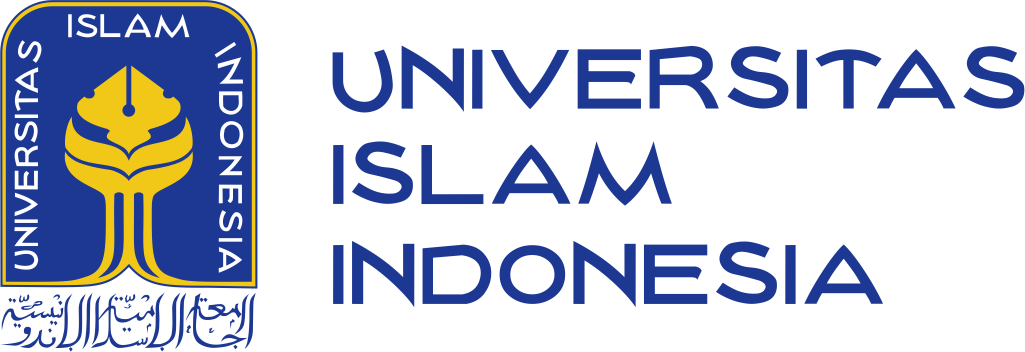It is indeed a great honor for me, on behalf of Universitas Islam Indonesia, to welcome you all in this important event, The 6th International Conference on Sustainable Built Environment (ICSBE 2021). The conference is held by the Faculty of Civil Engineering and Planning, Universitas Islam Indonesia and it is supported by University of Rhode Island, University of Borås, Gifu University, University of Malaya, National Cheng Kung University, University of Hawaii at Manoa, University of Hokkaido, Alanya Alaaddin Keykubat University, National University of Singapore, and Bauhaus University Weimar.
I imagine that if the Covid-19 pandemic were not around, we might have already gathered physically in Yogyakarta, Indonesia. But today, we have to held the conference virtually.
Hence, please allow to congratulate the committees of the conference for striving to maintain the academic atmosphere despite the pandemic.
To a great extent, I predict that virtual conference will be a new academic norm, even in the post-pandemic time.
Two qualitative keywords
The theme of this conference “Sustainable Environment and Infrastructure for Smart Cities” is both important and timely. Please allow me to underline and gently elaborate two qualitative keywords in the theme: sustainability and smartness.
I do believe that various conceptions of sustainability, the first keyword, can be found in the existing debates and literature. But, the definition of sustainability cannot be separated from temporal dimension. It does not only pay attention to the nowness of time, but more importantly, it emphasizes the future. Hence, we may agree that the development in all its facets should not only be responsive for the contemporary problems, but it also be sensitive to the possible future problems.
Another discussion on sustainability often touches upon its aspects or dimensions. One of the overarching concepts we may bring into the discussion is the triple bottom line, a framework which leads us to pay attention to the intersection among people, planet, and profit; often shortened as three Ps. Finding the best possible trade-off among these three aspects is always a challenge. Perhaps a life-long one.
The second qualitative keyword is smartness. For sure, in its relation to the concept of smart city, a variety of operationalization may manifest on the ground, as reported in the extant literature.
But, let’s get back to basics: the term smartness relates to the quality of being intelligent or ability to think quickly or intelligently in difficult situations. If we agree on this notion, then smartness will be the solution to the difficult situation, that in many cases it points to wicked problems, not trivial ones.
The literature tells us various characteristics of the wicked problems. They will involve unstable requirements and constraints based on ill-defined environmental contexts, contain complex interactions among subcomponents of the problem, and have inherent plasticity to change design processes as well as design artifacts. Moreover, the wicked problems are critically dependent upon human cognitive abilities (e.g., human creativity) and human social abilities (e.g., collaboration) to produce effective solutions (Hevner & Chatterjee, 2010).
If we agree on this, then we may reflect that those wicked problems are social ones that demand for social transformation design. Some people believe that we cannot solve the wicked problems, but we can make them better.
Design for human capability
Then, we need to put the society at the heart of design process. It is a human-centered approach. It is more humanitarian design (Dong, 2008).
Here, human is the source of problems, but at the same time they also the source of inspirations. This statement may be oxymoron or paradoxical. Let’s make it more precise to avoid ambiguity: unethical human is part the problems, while ethical human is part of the solutions.
Having said so, I invite all the designers, in a broader sense (architects, engineers, planners, to name a few), joining this conference to pay attention that all artefacts produced should promote human capability or provide conditions that enable them to transform the capability into a functioning.
The capability refers to possibility to act, while the functioning relates to realization of the capability. It has been argued that participatory design in its various manifestations can help the designers to produce quality artefacts.
Capability approach, which considers that ultimate goal of development is creating freedom to the people to transform their capabilities into valued functionings (Sen, 1999), may be relevant to be discussed in this context. This approach was introduced by Amartya Sen, the Noble laureate in economics.
In this area of concerns, the capabilities (and eventually the functionings) include freedom to access better livelihood (education and health services, for instance), to live side by side in harmony with others (both human and non-human), and to actively contribute to make the world a better place.
Sustainability and smartness should relate to the efforts to promote human freedom in making the capability functioning properly. At the end, they should create meaningful happiness. Otherwise, one may question where they are?
References
Dong, A. (2008). The policy of design: A capabilities approach. Design Issues, 24(4), 76-87.
Hevner, A.R. & Chatterjee, S. (2010). Design Research in Information Systems: Theory and Practice. Berlin: Springer.
Sen, A. (1999). Development as Freedom. New York: Alfred A. Knopf.
Opening remarks of the 6th International Conference on Sustainable Built Environment (ICSBE 2021), Universitas Islam Indonesia, 19-20 October 2021












